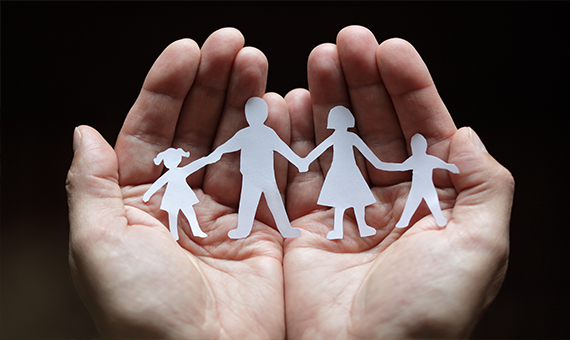
At Livingwell Supported Housing we are committed to working with a wide range of vulnerable service users, and throughout our services, staff could, from time to time, become aware of /or suspect situations where abuse of a vulnerable person may be taking place.
Overview
We will not knowingly ignore or allow such incidents to continue unchallenged and will require our staff to take action in all cases where it is suspected that abuse of a vulnerable person is occurring, no matter whom the perpetrator is or who the victim is.
We will respect and support anyone who whistle-blows because they think someone is being abused and have a Whistleblowing Policy to support this. We have developed this policy using guidance from the department of Health publication 'No Secrets' (2000) and Care and
Support Statutory Guidance issued under the Care Act 2014.The Care Act 2014 sets out six key principles that underpin all adult safeguarding work:
- Empowerment - Personalisation and the presumption of person-led decisions and informed consent.
- Prevention - It is better to take action before harm occurs.
- Proportionality - Proportionate and least intrusive response appropriate to the risk presented.
- Protection - Support and representation for those in greatest need.
- Partnership - Local solutions through services working with their communities. Communities have a part to play in preventing, detecting and reporting neglect and abuse.
- Accountability - Accountability and transparency in delivering safeguarding.
Under the latter, housing providers have a duty to co-operate with local authorities implementing their statutory duties around adult safeguarding. This may include: carrying out 'enquiries' into incidents, information sharing, participating in the new statutory local Safeguarding Adults Board. Housing providers are expected to make staff familiar with the principles of safeguarding, train staff to be vigilant, recognise signs of abuse and know what to do if they see those signs.
Safeguarding Adults
The purpose of this policy is to protect those adults who are subject to or at the risk of abuse and neglect, who are:- aged 18 years or over and who may be vulnerable and already be in receipt of or need of community care services by reason of mental or other disabilities, age or illness and who may be unable to take care of themselves or unable to safeguard themselves against significant harm or exploitation Client groups could include:-
- People with Learning disabilities
- People with Mental health problems
- Older people
- People with physical disabilities
- People with visual and sensory impairment
- People who rely on others for care and/or support
This can also include people who are vulnerable themselves as a consequence of their role as a carer for such a person. They may need additional support to protect themselves, for example, in situations such as domestic violence, physical frailty or chronic illness, sensory impairment, challenging behaviour, drugs or alcohol problems.
Definition of Abuse
Abuse is a violation of an individual's human and civil rights by another person or persons and may result in significant harm to, or the exploitation of the person subjected to it.
- Abuse may consist of a single act or repeated acts;
- May be physical, verbal, psychological or emotional;
- May be an act of neglect or an omission to act;
- May occur when a person is persuaded to enter into a financial or sexual transaction to which they had not consented, or cannot consent;
- May be deliberate or unintentional or result from lack of knowledge.
The main categories of abuse are:-
- Psychological
- Physical
- Sexual
- Financial or material
- Neglect and acts of omission
-
Discriminatory
Institutional Abuse
Institutional abuse is the mistreatment of people brought about by poor or inadequate care or support or systematic poor practice that can affect individuals and a whole group. It occurs when the individual's wishes and needs are sacrificed for the smooth running of a group, service or organisation.
Multiple forms of abuse
Multiple forms of abuse may occur in an ongoing relationship or an abusive service setting to one person, or to more than one person at a time, making it important to look beyond single incidents or breaches in standards, to underlying dynamics and patterns of harm. Any or all of these types of abuse may be perpetrated as the result of deliberate intent and targeting of vulnerable people, negligence or ignorance.
Dedicated Support
People who use our services can be facing a variety of problems that prevent them from living independently.
Every customer gets their own dedicated support worker who they meet regularly. Together they develop and sign up to a support agreement tailored to the customer's individual needs. The plan sets out positive goals and is monitored at regular meetings.
You do not need to be living in our accommodation to get this support.